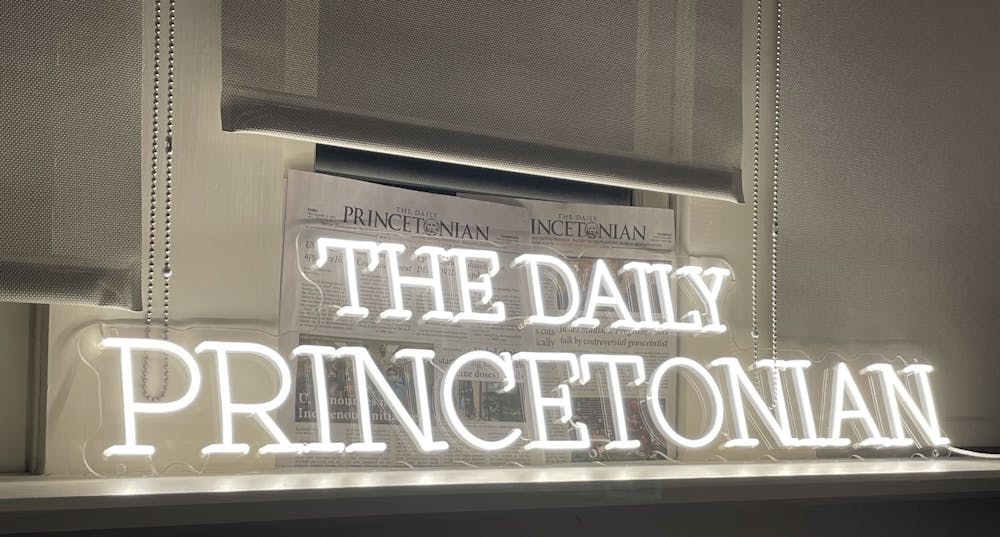In thinking about the role The Daily Princetonian ought to play on Princeton’s campus, I’ve been considering what it means to build trust — on the level of an individual, a group, and an entire community.
Late last March, an individual took the courageous step of reaching out to me to tell their story. They were experiencing anguish after being accused of violating the Honor Code, a process that left them feeling powerless and alienated by the university they loved. Reaching out to a reporter wasn’t an easy step for them to take. It involved divulging one of the most difficult moments of their life to someone they had never met. It involved reliving — on a Zoom interview with a stranger — a moment of trauma.
For me, that individual’s courage lit the flame. Nearly eight months later, the ‘Prince’ published their story. “Life after accusation: Inside Princeton’s Honor Code,” by the time it was published on Nov. 18, weaved together interviews with eight students who had been through the disciplinary process, three past or current student leaders of the Honor Committee, two faculty members, two administrators, six Peer Representatives, and four alumni. In the end, the story was over 5,000 words and relied on the work of two student photographers, a web designer, a print designer, a team of copy staffers, no fewer than four editors, and two reporters. But it all started with one person taking a leap of faith and putting their trust in the ‘Prince.’
Working on that story and several others, I saw in the most intimate of ways what it looks like when a community paper works each day to earn the trust of the community it serves.
At its core, the ‘Prince’ is a community paper. It’s run by a group of students who live their lives alongside the readers they serve: we eat in the same dining halls and eating clubs, we sit in the same lecture halls and log onto the same Zoom classes, and we’ve been just as impacted by the challenges of the past two years as any of our classmates. Like any good local newspaper, our reporters are members of the community whose stories it is their role to tell.
That fact is precisely what makes local and student journalism so vital: No one is better positioned to uplift a community’s stories — and to do so with respect, integrity, and empathy — than the people within it.
We at the ‘Prince’ are guided by a sense of responsibility. As an independent news organization, we task ourselves with holding those in power on this campus accountable. I truly believe — in part, because I’ve seen it happen — that we have the ability to elevate the voices in this community that most need to be heard and to persevere in the face of challenges to craft the difficult stories that need to be told.
But we can only be all this and do all this when we have the trust of the community we serve. And that starts with the trust of individuals.

This week — my first on the job — two individuals put their faith in the ‘Prince.’ On Monday, we published the work of AJ Lonski ’23. The moving piece was about his experiences with homophobia on the varsity wrestling team and his call for the University’s ostensible commitment to inclusion to extend to its athletics culture. On Wednesday, we published an anonymous student’s account of her experience seeking justice through Princeton’s sexual assault reporting system and her argument that Princeton failed her as a survivor.
In coming to us with their stories, both of these students showed unyielding courage and strength. And in turn, our team worked to approach their stories with decency and humanity; to do the stories and the individuals at the center of them justice; and to be fearless in the work of serving our community.
The work we do as an organization is the work of storytelling. Perhaps the most powerful impact of stories is that they can make us feel less alone. I saw this first-hand in the days after the Honor Code investigation was published. Several students reached out to me privately to say that reading about the experiences of fellow students — particularly first-generation low-income students — with the honor system, had left them feeling less ashamed of and less alone with their own experiences.
I’m proud of the stories told and conversations sparked by my predecessors and I know that each story we tell this year will only be made possible by the trust of our readers, our sources, and our community. Among undergraduates, graduate students, alumni, staff, faculty, and community members, we can uplift each other’s voices, learn from one another, and together, feel less alone.

In the words of Jonathan Safran Foer ’99, a novelist and a once-writer for the ‘Prince,’ “I write because I want to end my loneliness.” Books, in his view, “show us that conversations are possible across distances.”
With my year at the helm of the ‘Prince,’ my central goal is to foster conversations across distances.
Marie-Rose Sheinerman is the 146th Editor-in-Chief of The Daily Princetonian; this letter represents her views only. She can be reached at eic@dailyprincetonian.com.








